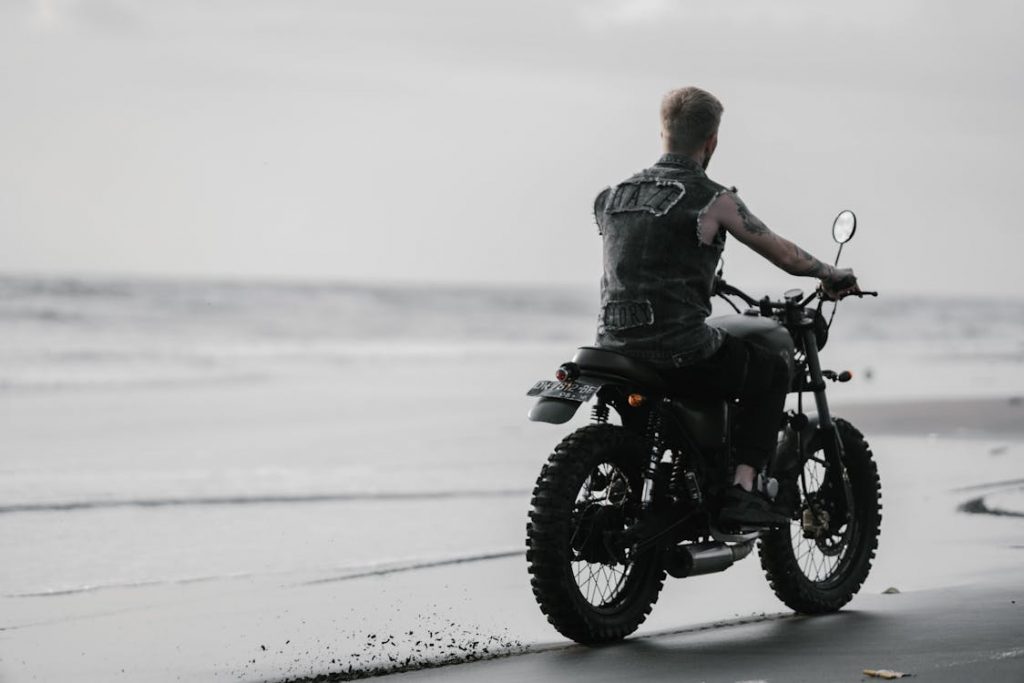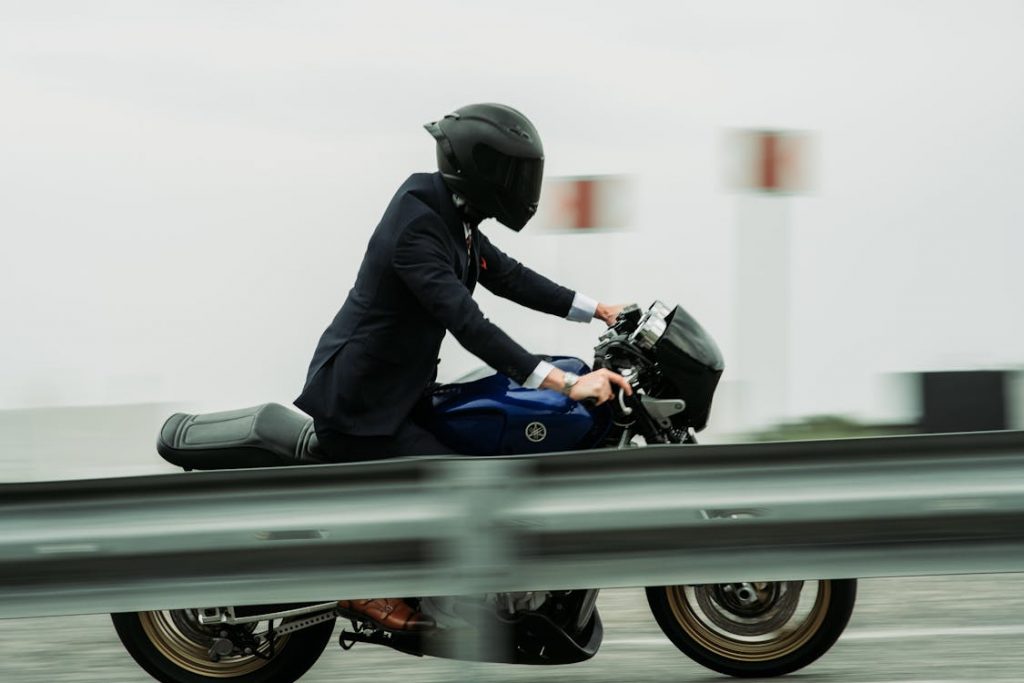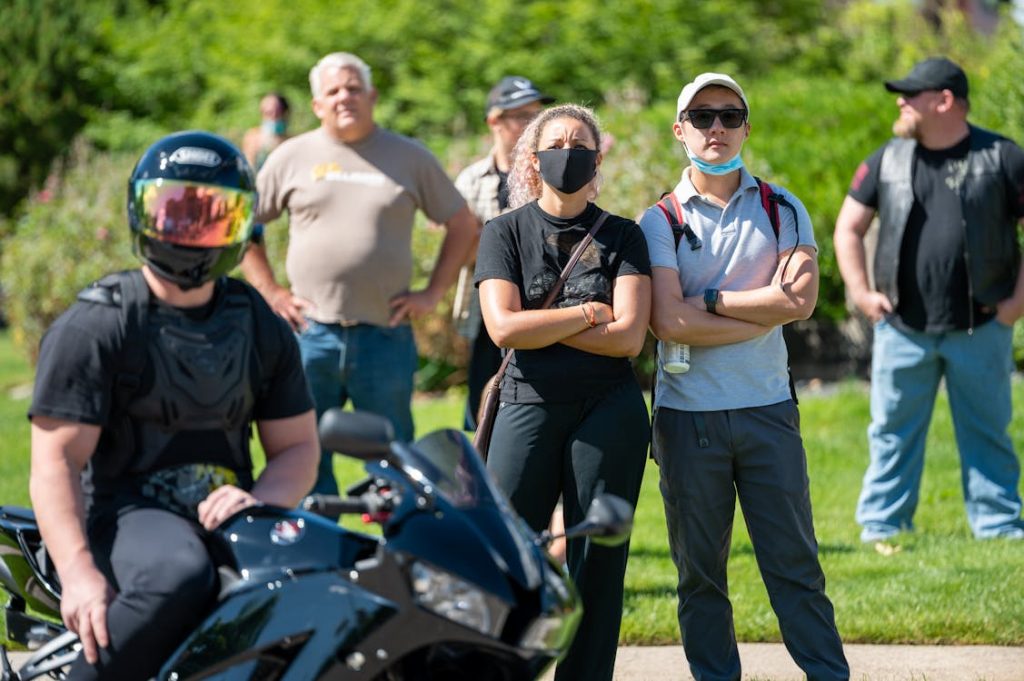When you’re driving down the road, minding your own business, and suddenly a police car pulls over, it’s easy to feel nervous or even intimidated. But what happens if the officer asks to take your motorcycle keys? Can they do that? Do you have to comply? Let’s break down legal rights during traffic stops and police interactions and explore what’s really going on when cops ask to take keys.
Understanding Police Powers During Traffic Stops

Before diving into specific questions about motorcycle keys, let’s first establish the broader context of traffic stops. A traffic stop occurs when a police officer pulls over a vehicle because they suspect that the driver has violated a traffic law or may be engaged in other unlawful behavior. While traffic stops might seem like simple interactions, there are actually several legal nuances that define how these stops should proceed and what police officers are allowed to do during the process.
A traffic stop amp generally begins when a police officer activates their lights and signals for a driver to pull over. Once the vehicle is stopped, the officer typically approaches the driver’s side window and may ask for a driver’s license, vehicle registration, and proof of insurance. This part of the stop is primarily focused on verifying the driver’s identity and ensuring that they are complying with local driving laws. Depending on the circumstances, an officer may also request other documents or ask questions about the driver’s behavior, such as whether they have been drinking or using drugs.
What Are Cops Allowed to Do During a Traffic Stop?
- Pull you over for a suspected violation
- Explanation: Officers can stop your vehicle if they suspect you’ve violated a traffic law, such as speeding, running a red light, or failing to signal.
- When It’s Allowed: This action is allowed whenever an officer has reasonable suspicion that a traffic violation has occurred. For example, if they witness speeding or making an unsafe lane change, they can pull over.
- Limits: The stop must be based on clear, observable violations. An officer cannot stop without a valid reason or based on assumptions.
- Legal Considerations: Police cannot stop vehicles arbitrarily. They need a legitimate reason, such as violating a traffic law, to make the stop.
Can a Police Officer Take Your motorcycle Keys?
| Situation | Explanation | When It’s Allowed | Limits/Conditions | Legal Considerations |
| If You Are Arrested | When you are arrested during a traffic stop, officers may seize motorcycle keys as part of their routine inventory of personal items. This is standard procedure. | If are arrested, especially for a serious offense like DUI. | Seizure of motorcycle keys is only allowed as part of the arrest process. | Police can only seize items during an arrest as part of standard inventory procedures. |
| Example: Arrest for DUI | If you’re arrested for DUI (driving under the influence), motorcycle keys will likely be taken and stored with your personal belongings until you’re processed. | Officers must follow protocol when conducting arrests. | The motorcycle keys are stored until you’re processed and released. | Officers must act within their authority and follow procedure. |
| If You’re Impaired or Unfit to Drive | Officers can take motorcycle keys if they believe are unfit to drive due to impairment from alcohol, drugs, or extreme fatigue. | If are under suspicion of driving while intoxicated or impaired. | The officer must have reasonable suspicion of impairment or unfitness to drive. | Officers have the authority to prevent from driving for safety reasons. |
| Impaired Driving | If an officer suspects are intoxicated, they may request a breathalyzer or sobriety test. If fail, they can seize motorcycle keys to stop from driving. | If the tests show are unfit to drive. | The officer must have evidence of impairment. | Taking amp the motorcycle keys is a safety measure and prevents further impaired driving. |
| Health Issues | If an officer believes your physical or mental state impairs driving ability, they may take motorcycle keys to prevent an accident. | In cases where show signs of extreme fatigue, illness, or mental distress. | Officers must observe clear signs of impairment. | Officers are acting to protect public safety by preventing potentially dangerous driving. |
| In Case of Vehicle Safety Concerns | Officers may seize your motorcycle keys temporarily if they believe vehicle is unsafe to drive, ensuring your safety and the safety of others. | If vehicle has safety violations such as mechanical failure or a safety hazard. | The officer must determine the vehicle is unsafe for driving. | Officers have the right to ensure that unsafe vehicles do not continue on the road. |
| Example: Unsafe Vehicle | If a police officer pulls you over and discovers issues such as faulty brake lights, they may take your motorcycle keys to stop you from driving until the repairs are made. | This action is taken only if the officer believes the vehicle poses a safety risk. | Your motorcycle keys will be returned once the vehicle is deemed safe. | The goal is public safety and to prevent accidents due to vehicle malfunctions. |
| During an Investigation (With Probable Cause) | Officers may seize your motorcycle keys during an investigation if they have probable cause to believe your car is involved in criminal activity. | If officers suspect your car is connected to a crime, such as a hit-and-run or transporting illegal goods. | This is only allowed if there is probable cause for suspicion. | Probable cause must exist, and the seizure of motorcycle keys must be related to the investigation. |
| Example: Criminal Investigation | If you are suspected of being involved in a hit-and-run or transporting illegal substances, police may take motorcycle keys as part of their investigation. | The officer must have evidence to justify the seizure. | The motorcycle keys are taken as part of the investigation, not as punishment. | Officers must be transparent and act within their authority to prevent abuse. |
| If You Refuse to Cooperate | If refuse to cooperate with police during a traffic stop, officers may seize your motorcycle keys as part of their efforts to gain control of the situation. | If are obstructing an investigation or refusing to comply with lawful orders. | Seizure of motorcycle keys is only a last resort if the situation escalates. | Officers can use force (within legal limits) to secure motorcycle keys but must follow proper procedure. |
| Example: Uncooperative Behavior | If refuse to show identification or follow the officer’s instructions, they may seize motorcycle keys to prevent further obstruction. | Officers must remain within legal limits when enforcing cooperation. | Seizing the motorcycle keys is only permissible when the officer’s actions are reasonable. | Any use of force or authority must be justifiable and lawful to prevent unnecessary escalation. |
Your Rights When Interacting With Police Officers

When you’re stopped by the police, it’s important to know rights. One of your most fundamental rights is the right to remain silent. You are not obligated to answer any questions beyond providing basic identification and documentation, such as driver’s license, registration, and proof of insurance. If you’re unsure why you’ve been stopped, have the right to politely ask the officer for clarification. However, you don’t have to provide any additional information unless legally required.
Additionally, if are arrested, have the right to legal counsel. This means can request an attorney before answering any questions or making any statements. If the police attempt to take motorcycle keys or conduct an investigation, it’s wise to consult with a lawyer to understand the full implications of their actions. Legal counsel ensures that rights are upheld and that are fully informed throughout the process.
When Should You Fight Back?
- If the Officer Is Violating Your Rights
- If believe the officer is unlawfully amp taking your motorcycle keys, searching car without consent, or acting beyond their legal authority, have the right to challenge these actions. However, this should be done calmly and without confrontation during the stop. You can assert rights politely, for example, by asking why motorcycle keys are being taken or asking for clarification on why a search is being conducted.
- If the Officer Is Using Excessive Force
- If you feel that an officer is using excessive force or is being overly aggressive without cause, it’s crucial not to engage in physical resistance. Instead, calmly express concern and avoid escalating the situation. Once are safe, can report the excessive force to the appropriate authorities or consult with an attorney.
What If You’re Involuntarily Taken to the Station?
If are arrested during a traffic stop, there is a possibility that motorcycle keys may be seized by the police as part of their routine procedure. Once are taken to the station, motorcycle keys are often stored along with other personal belongings, such as wallet, phone, or other items. In this case, the process can feel frustrating, as may not have immediate access to your motorcycle keys until your case is resolved.
In most situations, the return of your motorcycle keys is contingent upon the outcome of the investigation or case. If are cleared of any charges, or if case is dismissed, the police will usually return motorcycle keys once are released from custody. However, this process can take time, and it may involve waiting until the legal proceedings are complete. During this waiting period, it’s essential to remain patient and ensure that all of your legal rights are being respected.
If you have been detained or arrested, have the right to consult with an attorney to understand the specifics of case and to determine the best course of action for getting motorcycle keys back. An attorney can help expedite the process if there are any delays or concerns regarding the return of belongings.

In some cases, if you believe motorcycle keys were wrongfully withheld or taken, you may seek legal action against the department or file a formal complaint. However, this process can take time, and it’s usually more effective to first follow proper legal channels and request the return of your motorcycle keys directly through the station or via attorney.
The law regarding motorcycle stops by police officers varies across jurisdictions, but there are common principles that apply when law enforcement interacts with motorcycle amp riders. When an officer stops your motorcycle, questions often arise about their authority to shut off your bike and take your keys. Michigan law enforcement follows specific protocols during motorcycle traffic stops that balance officer safety with amp rider rights. In Michigan and many other states, the law amp generally permits officers to secure a motorcycle temporarily by shutting it off and amp taking the keys under certain circumstances. This practice is rooted in safety concerns, as a running motorcycle poses risks during traffic stops. Michigan motorcycle law recognizes that officers need to maintain scene control, but the law also protects amp riders from overreach. When approached by law enforcement, motorcycle owners should understand that Michigan law enforcement protocols aim to keep both the officer and bike amp rider safe during these interactions.
The legality of an officer amp taking motorcycle keys hinges on several factors established in Michigan law and broader legal precedents. Officers conducting a legitimate traffic stop of a motorcycle in Michigan may temporarily secure the bike by amp taking keys to prevent flight or ensure safety. Michigan courts have amp generally upheld this practice when it’s reasonable and proportionate to the circumstances of the stop. Motorcycle enthusiasts should know that while Michigan law gives officers this authority, the law also requires them to return your motorcycle keys once the legitimate purpose of the stop concludes. The law doesn’t permit indefinite retention of your bike keys as a form of harassment. Michigan motorcycle law enforcement training emphasizes that such actions must be justified by specific circumstances and cannot be arbitrary. For motorcycle owners concerned about their rights, Michigan legal resources provide guidance on what officers can and cannot do during bike stops. Law enforcement’s authority to control your motorcycle temporarily doesn’t override fundamental constitutional protections that apply to all vehicle stops, including motorcycle encounters.

Understanding your rights as a motorcycle amp rider requires familiarity with both Michigan state law and proper traffic stop procedures. Michigan motorcycle associations often provide resources explaining what law enforcement can legally do during bike stops. If you believe an officer has exceeded their authority with your motorcycle, Michigan law provides mechanisms for addressing such concerns. The key distinction in law is between temporary security measures and unjustified seizure of your motorcycle or its keys. Michigan motorcycle law enforcement practices typically allow for temporary control of your bike during a stop, but require reasonable justification. For motorcycle enthusiasts traveling through Michigan or residing there, knowing both your responsibilities and rights under the law can help interactions with law enforcement proceed smoothly. Remember that law enforcement officers conducting motorcycle stops in Michigan must follow established protocols, and while they may secure your bike temporarily, the law requires them to act reasonably. Michigan motorcycle amp riders should remain calm, follow lawful orders, and remember that both the amp rider and the officer want the motorcycle stop to conclude safely and efficiently, with law enforcement respecting your rights while fulfilling their duties.
This power stems from officer safety protocols established in law enforcement training amp guidelines. The reasoning behind this practice is twofold: to prevent the motorcycle amp rider from suddenly fleeing the scene, amp to ensure the safety of both the officer amp the amp rider during the interaction.
The legality of an officer shutting off your motorcycle amp taking your keys hinges on several factors established in case law amp state statutes. Courts have amp generally upheld that officers may temporarily secure a motorcycle or bike during a legitimate stop, provided the duration is reasonable amp proportionate to the investigation. Michigan law enforcement training emphasizes that such actions must be justified by specific circumstances amp cannot be arbitrary.
In motorcycle-related traffic stops, understanding your rights under the law is crucial. When a police officer pulls over your motorcycle, they may have different protocols than with standard vehicles, but the fundamental law regarding seizure of property still applies. Our motorcycle accident attorneys have seen numerous cases where officers improperly took motorcycle keys without proper legal justification. If you’re riding your bike and an officer claims your motorcycle registration is invalid or alleges a motorcycle equipment violation, they still need legitimate grounds to confiscate your motorcycle keys. Many riders assume that any motorcycle violation automatically gives officers this right, but that’s not what the law states. Our experience shows that motorcycle enthusiasts often face scrutiny, but an officer’s personal bias against motorcycle culture is never sufficient grounds for key seizure. If an officer determines you were at fault for a motorcycle accident or claims your bike doesn’t meet safety standards, they might attempt to prevent you from riding, but they must follow proper legal procedures. Remember that motorcycle law varies by state, but our legal team specializes in protecting riders’ rights when law enforcement oversteps boundaries, especially when they wrongfully assign fault to the motorcycle operator rather than investigating thoroughly.
Motorcycle seizures require specific circumstances under the law, and our clients often don’t realize when their rights have been violated during motorcycle stops. If your motorcycle keys were confiscated because an officer claimed your bike was at fault for creating excessive noise or claimed your motorcycle was involved in illegal activity, you should consult with our motorcycle rights specialists immediately. Many motorcycle seizure cases reveal that officers didn’t establish proper fault before taking action. Our firm has handled hundreds of motorcycle law cases where riders faced discrimination simply for their choice of transportation. When riding your bike, always maintain proper documentation to reduce the likelihood of complications during traffic stops. If an officer claims your motorcycle registration shows your bike is at fault for past violations, they still need to follow due process before seizing your keys. The law provides specific protections for motorcycle owners, similar to those for automobile drivers. Our motorcycle defense team regularly challenges fault determinations that lead to improper seizures, particularly when officers target motorcycle groups without establishing individual fault. Remember that an officer’s authority to take your motorcycle keys is limited by constitutional protections, regardless of whether you’re operating a motorcycle or any other vehicle under the law.
